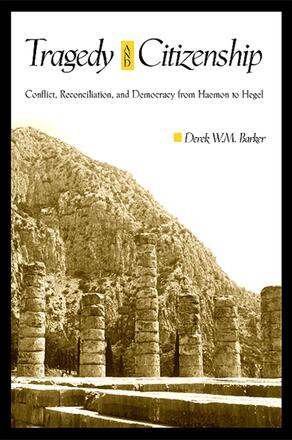
Tragedy and Citizenship
Conflict, Reconciliation, and Democracy from Haemon to Hegel
Alternative formats available from:
A study of attitudes towards tragedy in both democratic and nondemocractic political theory.
Description
Tragedy and Citizenship provides a wide-ranging exploration of attitudes toward tragedy and their implications for politics. Derek W. M. Barker reads the history of political thought as a contest between the tragic view of politics that accepts conflict and uncertainty, and an optimistic perspective that sees conflict as self-dissolving. Drawing on Aristotle's political thought, alongside a novel reading of the Antigone that centers on Haemon, its most neglected character, Barker provides contemporary democratic theory with a theory of tragedy. He sees Hegel's philosophy of reconciliation as a critical turning point that results in the elimination of citizenship. By linking Hegel's failure to address the tragic dimensions of politics to Richard Rorty, John Rawls, and Judith Butler, Barkeroffers a major reassessment of contemporary political theory and a fresh perspective on the most urgent challenges facing democratic politics.
Derek W. M. Barker is a program officer at the Kettering Foundation.
Derek W. M. Barker is a program officer at the Kettering Foundation.